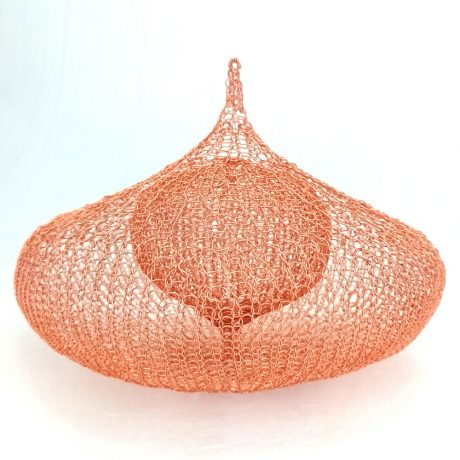Deep within the icy landscapes of a Norwegian Island in the Arctic, where the ground is permanently frozen, The Svalbard Global Seed Vault has for decades been gathering and storing crop seeds from all over the world, preparing for a day when we may need to call upon it to revive our fragile food ecology. It is estimated now that between 200 and 2,000 species of plants and animals become extinct every year, and this state-of-art facility is designed to protect the future of our livelihood from natural or man-made global disasters.
My ancestral home, Taiwan, is a small island with diverse natural environment, supporting a wide range of flora of over 4,000 plant species. And yet, with the current rate of destruction, a mere 2 years would be equivalent to wiping out the entire range of native Taiwanese flora.
This new series, titled “Genesis: The Seedpod Project” examines ideas of survival, of preservation, and of the effectiveness of intervention. It questions the value that we place in the things around us, and how far we would go to preserve our current way of life, and at what costs?
For this project, seeds of native plants from Taiwan were sustainably collected, dried, and encapsulated within a layer of copper. A special casting technique was used to coat a layer of copper over the seed, leaving the seed intact and forever protected within. Then, by using the traditionally feminine craft of crochet, copper wire was utilised to construct a ‘seedpod’ to enwomb each species of the metal-encased seed. The seedpods range in shape and size, and being constructed in metal-wire, they are see-through so the viewer can view the metal seeds inside. The seedpods are displayed on plinths or hanging from the ceiling, drawing references to a taxidermy museum, and reflecting life suspended in time. However, the copper used on the seeds and seedpods will also tarnish over time, paradoxically making them ephemeral in nature and reflecting decay.
This series explores the dichotomies of the permanent and the transient, of the natural and the man-made, of life and extinction, and of the beautiful and the macabre.
To see videos showing the layers of these works, click here.

Coix lacryma-jobi (Job’s Tears). 2019. Seeds native to Taiwan encased in copper, copper wire. 18.5 x 18.5 x 15 cm.


